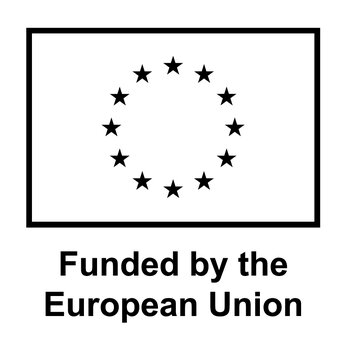"We finally want to dig up this treasure of data and make it usable without having to give up data privacy"
"We finally want to dig up this treasure of data and make it usable without having to give up data privacy"
Congratulations on the ERC Grant, Nico. From the idea to the grant - what is the process like?
In principle, any researcher can apply for an ERC Grant at least two years after their PhD. This is the most sought-after research funding in Europe. The selection process is tough, and applications that are not thoroughly thought through will be subject to an application block of one to two years. Moreover, there is not one breakthrough idea at the beginning of this path. Rather, it is preceded by several years of work in which one must show that one can translate research approaches into influential publications and conduct independent research. Otherwise, you don't stand a chance. The idea for such a large research project is not something you start from scratch. A lot of my preliminary work is already in a similar field. But of course, you need a new and innovative approach or a new perspective to have a chance at the ERC grant. You have to present this in a very detailed project proposal. I spent three and a half months writing and polishing it. Once it's submitted, it's a matter of waiting. Only about a third of the applicants make it through the first round of evaluation. Once you've successfully passed that, you have to give another very brief presentation to the awards committee about what you want to do and then face an interview. To be honest, that was pretty nerve-wracking. Ultimately, only about 10 percent of all applicants receive positive news.
What is the funded research project about?
Together with a team of three, which I will be putting together in the coming months, I want to develop techniques and methods in the "Laconic Cryptography" project that will, for example, pave the way for the secure use of machine learning processes in medicine. Valuable medical data has been collected worldwide for a long time, and its analysis could improve the diagnosis and treatment of diseases enormously. However, it is currently not possible to securely combine this data and evaluate it using data-intensive analysis methods, i.e., what is commonly referred to as artificial intelligence, because many cryptographic techniques have so far failed when processing large volumes of data. We want to finally dig up this treasure of data and make it usable without giving up data protection in the process.
What does this high funding amount mean for you and your team?
The funding will allow me to pursue my scientific vision with vigor, for example, by recruiting three top-class young researchers who will be able to devote themselves solely to research on my project and will not have to teach or do other work on the side. For me, it also means that I don't have to submit quite as many third-party funding applications as before (laughs).
After only about three years as a so-called tenure-track faculty, you became tenured faculty in December 2021. Can you explain what exactly that means?
It means that my contract is now open-ended, and I can finally be sure that I can stay here. Now I can start looking for a house for my family and me. A tenure-track faculty is a senior scientist who is initially hired on a fixed-term basis and must prove themself for a certain time. This position is most like what a W2 professor is at a university, which has staff, gets to supervise people, and awards PhDs but doesn't have their own chair. The tenured faculty is most comparable to a W3 professor, a department chair at university. However, we are not a university, so I do not have a professorial title, nor do I have the same rights and duties as a university professor. However, it is possible to apply to the university to be appointed as an honorary professor and thus be allowed to use the title.
How does one become a tenured faculty?
Depending on your curriculum vitae, you can simply apply directly for a tenured position. However, young researchers usually apply for a tenure-track position. A distinction is made between the "normal" tenure track, which generally lasts five years, and the fast track, which requires only three years of probation.
What's the difference between that and a professorship at the university, and would that still appeal to you?
Honestly, no. At the university, a professorship comes with some rights, but also with many responsibilities. For example, the number of hours you have to teach is very high, and there are also some rather administrative tasks. At CISPA, on the other hand, I can devote myself entirely to my research.
The "Cyberagentur" awarded the contract for its first advertised project to you. With your former doctoral supervisor Prof. Jörn Müller-Quade from KIT in Karlsruhe, you are leading a feasibility study on encrypted computing. What do you want to find out in this study?
Encrypted computing is a method of analyzing data without first decrypting it. In this way, particularly sensitive and security-critical information can remain secret and still be processed. The concept of fully homomorphic encryption is considered particularly promising. We want to find out how ready potential applications already are that can then be used in the future in the area of internal and external security.
What else do you dream of as a researcher?
I still have a whole list of problems in my drawer that I want to solve, or rather: see solved. Because why do you become a researcher? Because somewhere in the world, there is still an annoying problem. A condition where our knowledge reaches its limits. Expanding these is what drives me. There's always plenty to do.
translated by Tobias Ebelshäuser
